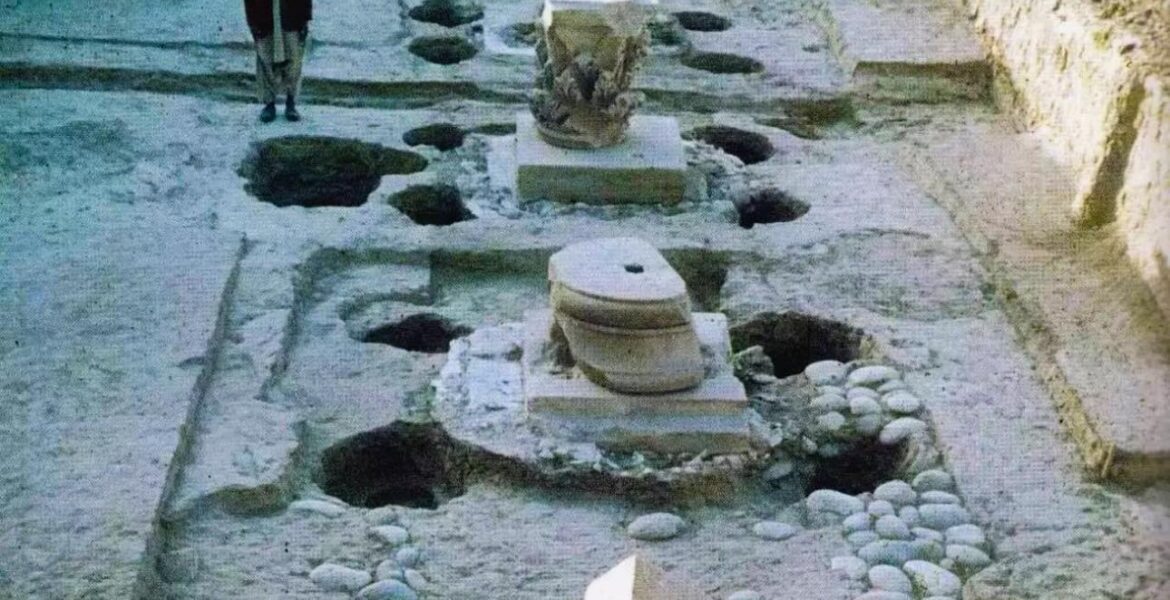Ai-Khanoum was an ancient Greek city located in present-day northern Afghanistan. The city was founded in the 4th century BC following the conquests of Alexander the Great in the region. It is believed to have been established by one of Alexander's generals, Seleucus I Nicator.
Ai-Khanoum was a thriving Hellenistic city that served as an important hub along the ancient Silk Road trade route. The city featured a variety of Greek-style architecture, including a large central agora (marketplace), a gymnasium, a theatre, and a palace. The city's layout was based on a grid pattern, typical of Greek urban planning.
Archaeological excavations at the site revealed a wealth of artifacts that provide insights into the city's diverse population's daily life, culture, and interactions. The city was likely home to a mix of Greek settlers, local Bactrians, and other peoples from the region.
One of the most famous discoveries at Ai-Khanoum is a remarkable Hellenistic-era treasure trove known as the "Ai-Khanoum Treasure."
This collection of exquisite artifacts includes coins, jewellery, pottery, and other items made of gold, silver, and precious stones.
The city flourished for several centuries before declining in the 2nd century BC, likely due to a combination of factors such as political instability, economic changes, and possibly invasions. The exact reasons for its abandonment are not entirely clear.
The article first appeared on History’s Mysteries.
READ MORE: Echoes of Alexander: 2,800-Year-Old Indo-Greek City Found in Modi's Village.


